Mission: Impossible
My strut onto flight HC202 from Dakar, Senegal felt more like a victory lap, as I showed my ticket and took a seat among 100-plus Africans dressed in colorful dresses and boubous. I was the only gringo on the flight, and that’s just the way I like it. Flying into Guinea was nothing short of a miracle. It was the one country, out of nine on this trip, that would give me problems from the very first moment I started planning this crazy December 2020 mid-pandemic West African adventure.
The web told me Guinea was closed shut for Corona. The embassy in DC was not issuing visas. I got excited for a second when I was able to apply (and pay) for the eVisa online. Sadly, they took my money but sent me an email saying they weren’t issuing visas right now. (Then why’d you take my money?)
Booking flights throughout Africa—especially very close together—is a risky business at anytime. Add in a pandemic and you have better odds of winning the twin trifecta the track. You see, even in normal times, flight cancellations/changes in Africa are the norm. That’d be fine if I was spending weeks or even a few days in destination and could easily just roll with it, but my average stop for a country is between one and three nights. Many of these flights happen just once a week, so if something happens to just one flight, it’s a chain reaction for all of them – one domino makes them all fall! But for some reason, I was bound and determined to “finish” West Africa this year.
Western Sahara, Liberia, The Gambia, Guinea Bissau, Guinea, Sierra Leone and São Tomé would be the new ones on this trip. I spent weeks and weeks perfecting this complicated itinerary, which included three trips back and forth to Casablanca (super out of the way but it was the only way to make it work), a few regional flights and two overland road trips. The final itinerary resembled a Chinese math equation.
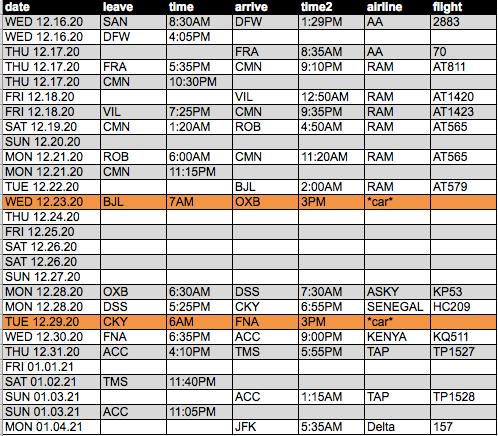
Back to the Guinea visa quandary: With no success at home, I figured I’d try my luck at picking up a visa at any of the four cities on the way that hosted Guinea embassies: Monrovia, Liberia; Banjul, Gambia; Bissau, Guinea Bissau and Dakar, Senegal. That would be a lot easier than sending my passport and documents to Washington DC anyway, right?
Monrovia, Liberia: Crap, I forgot the embassies don’t keep hours on the weekends. I arrived early Saturday morning and left before dawn Monday morning, so I couldn’t even make the attempt here. Strike one.
Banjul, Gambia: The man at the embassy gave me all the requirements, including demanding I take a new Corona test, only to tell me the next day that he was out of visa “stickers.” Okay. Strike two.
Bissau, Guinea Bissau: What luck that the Guinea embassy was not but two blocks from my hotel! What wasn’t such luck, was that the man behind the desk was a total dick. Even though I can speak Portuguese, he talked so quickly that the only thing I was left with was a big fat no. I tried a second time, later that day, bringing in a local to help assist. Still no dice. I certainly didn’t feel entitled, but the guy could’ve at least been a little helpful. He definitely could’ve been a little nicer. Either way, he said he was not authorized to issue any visas to anyone, due to the pandemic. Strike three, you’re OUT!!!
“Well that’s it,” I conceded. Looks like it’s not gonna happen anywhere.
I flew up the white flag. And now there was a new problem: If I couldn’t fly to Guinea, that meant I wouldn’t make it to the country after Guinea: Sierra Leone – I’d planned an overland trip there from Guinea. I searched for other routable options to Sierra Leone online and there was simply no way, no how. I would now end up missing both Guinea and Sierra Leone. The dominoes had fallen!
It seems like recalculating the route would be easy, but you have to understand that there was only one flight out of Bissau per week, to Senegal; and a few to Lisbon. (Portugal was not an option, they wouldn’t have let me in). Bissau is absolutely the toughest place to get in and out of. But that wasn’t the worst of my problems. At this point, I just needed to make it to Ghana – to connect to my final country on the trip, São Tomé, and then, get home! But even getting to Ghana would be a bear, taking three connections and over 48 hours! I finally made it work, booking tickets from Bissau to Senegal, Senegal to Côte D’voire, and then Côte D’voire on to Ghana. Whew! It wasn’t cheap, plus I’d lose the money I spent on my Senegal–Conakry and Sierra Leone–Ghana flights. I was bleeding money, but I needed to make sure I could get home at this point. One false move and I’d be stuck. This was hairy.
More Guinea, Less Bissau!
After spending five nights in Guinea Bissau (not to be confused with “regular” Guinea), I was ready to go. I really liked Bissau, but five nights in the capital was a little too much. It felt so good to be in Dakar – a city much, much more developed than Bissau. Just driving on the smooth highway leaving the airport felt like such a luxury after staying so long in a country where “highways” simply don’t exist. The roads in Bissau were so bad in fact, that just 145 miles took eleven hours! You can’t imagine – huge craters every three feet. It was really bad.
My layover in Dakar was exactly ten hours before I’d fly to Ivory Coast that night, and I had one final chance at a Guinea visa. I contemplated spending those ten hours catching up on some much needed sleep at the luxurious airport Radisson that I’d booked for the day – it really was nice! But I’m not a quitter. I knew I’d regret it and wonder “what if,” if I didn’t give this Guinea visa one more shot. I had to try.
The traffic was horrible on the way into town and for a second I figured it would be just my luck – that maybe the visa wouldn’t even matter because I’d end up missing both the Guinea and Ivory Coast backup flight (both departing at 5:30PM) because I’d be stuck in a traffic jam. Luckily, we broke through the mess minutes later and soon we were driving down a dirt road, pulling up to the Guinea embassy in Dakar. One last go.
There were a group of five guys outside a closed metal gate. I wondered if the embassy hadn’t opened yet, and they were all in line – ahead of me, of course. This could take hours! I was elated when I discovered that wasn’t the case, as a security guard welcomed me in and walked me right into an office marked “Bureau de Visas.” This was my last shot. And I had a plan.
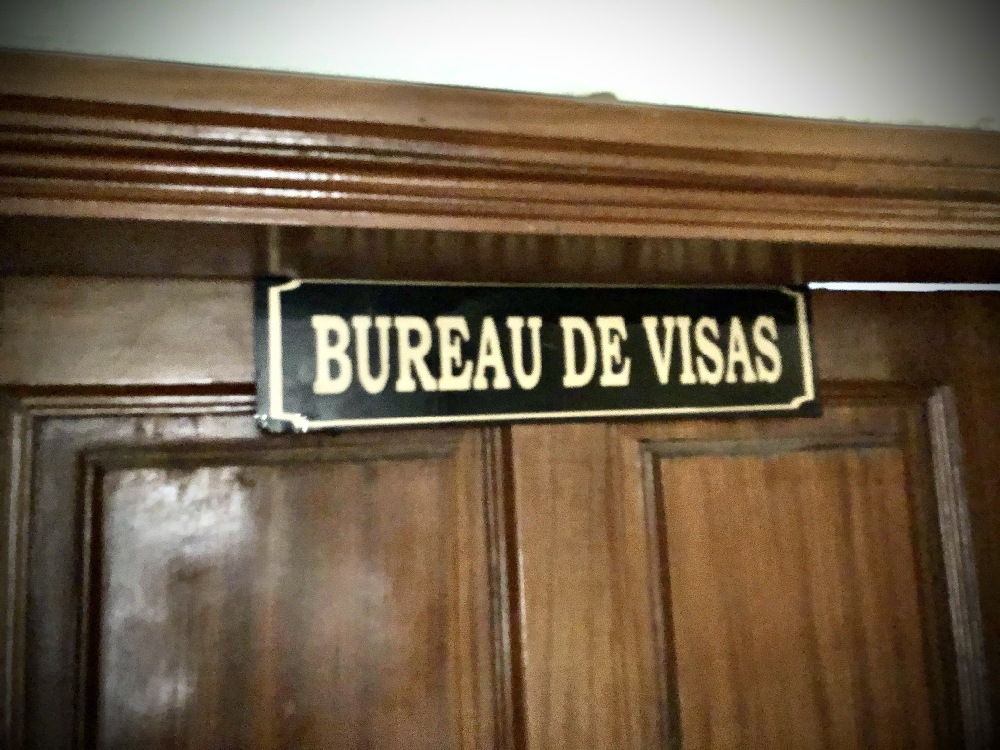
By Any Means Necessary
Forget being the guy on vacation trying to see every country in the world. I would not ask for a “tourist” visa this time. Instead, I’d plead for a “transit” visa, as I truly was transiting. An airline flight change gave me just one night in Conakry – I’d need to make the drive into Sierra Leone the very next morning, early. I truly was “transiting.” Maybe this would change my outcome: less “guy goofin’ around trying to visit every country” and more “serious American just trying to get home.”
I entered the room with a smile to see a young man behind the desk. My plan was to mix charm with just enough urgency to persuade him to issue me that visa. I tried to ask how his Christmas was, but the language barrier was too wide. I can’t count the number of times I kick myself for not paying attention in French class. But to my surprise, he knew exactly what I wanted, quickly looked at my documents and passport, and replied, “Express visa? $70,000 Cfa.” Holy crap, did that mean I got it?
Of course, I’m the dummy that didn’t have enough cash on hand. Luckily there were two banks right next door. I had him keep the passport—hoping he’d start the process while I was at the bank—and told him I’d be right back. I speed-walked outta there like a Mom on her morning circuit as I high-tailed it a couple hundred feet down the street and slipped into the ATM booth like a criminal in the night.
“MACHINE OUT OF ORDER.” Crap! This is just my luck! Panic set in and I could feel my heart race. I dashed three doors down to the next bank. Wanna know my favorite sound in the whole world, at least this year? The sound of the machine’s sweet whirring, sorting the cash right before it spit out my 200,000 Cfa. Hot dog!
By the time I returned and knocked on the Bureau de Visa’s door and entered like a child late for class, the gentlemen behind the desk was already reaching his hand out with my passport – complete with an official Guinea Visa plastered on page 32. I was so excited and grateful, and candidly, a little in disbelief. This was too easy! I thanked him profusely and got the heck out of there before he changed his mind. I asked his name – I’m not sure how it’s spelled, but it sounded like “Seh-Bee-Day”…Mr. Cebide maybe? Well Mr. Cebide, I’m here to tell you, I love you! You don’t know how happy you’ve made me!
It was a glorious ride back to the Radisson to collect my bags. I couldn’t believe this final-hour Hail Mary paid off. This would put my entire trip right back on the tracks. Unbelievable! But who would’ve guessed trying to leave Guinea once I arrived would prove even more difficult than getting in? Read on.
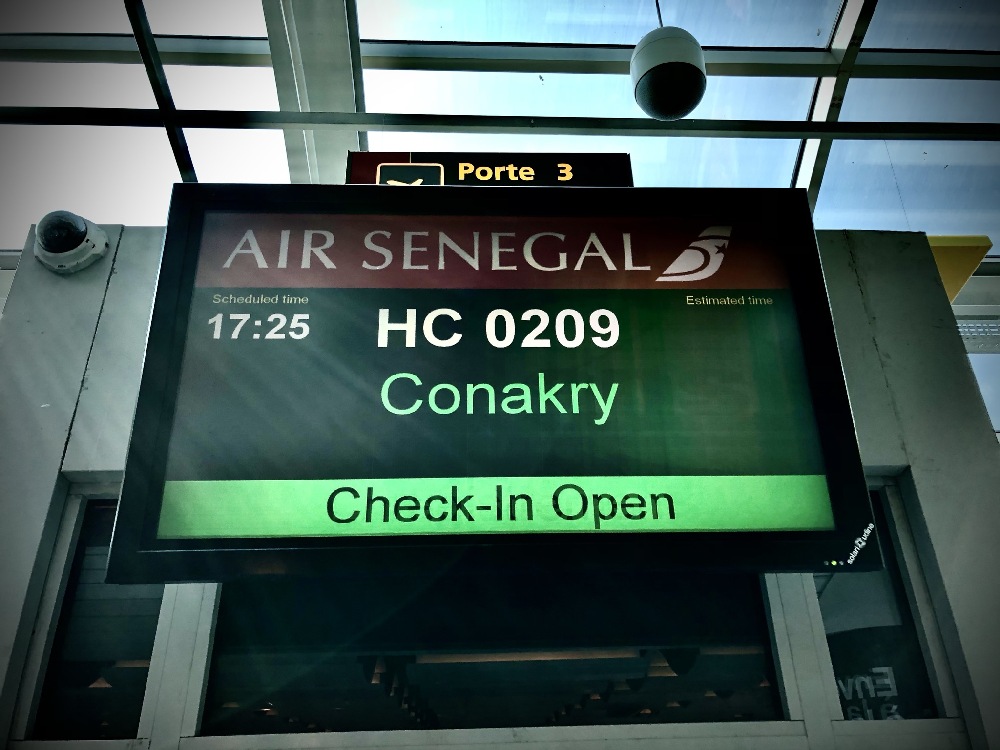
More Guinea, Less Bissau
I felt so darn good flying into Conakry that evening. I’d beaten all odds – like Rocky getting getting pulverized consistently until that surprise comeback during the final, twelfth round. What an upset right before the buzzer!
By the way, I need to clear this up now and drop the disclaimer that “just plain” Guinea should not be confused with Guinea Bissau – the last country I was in. Fun fact: There are actually four “Guineas”: regular Guinea, Guinea Bissau, Equatorial Guinea and Papua New Guinea! So now you know your Guineas! Next class, we’ll contrast and compare the Guyanas!
Because an airline flight schedule change had me holed up in Bissau three days longer than I originally planned, it meant I’d only have one single night in Conakry. A disappointment indeed, but easily overshadowed by the pure elation of actually making it in. I was one happy boy. Add to the equation that my small quantity of time in Conakry was of solid quality, and I say this quick visit was an extreme success.
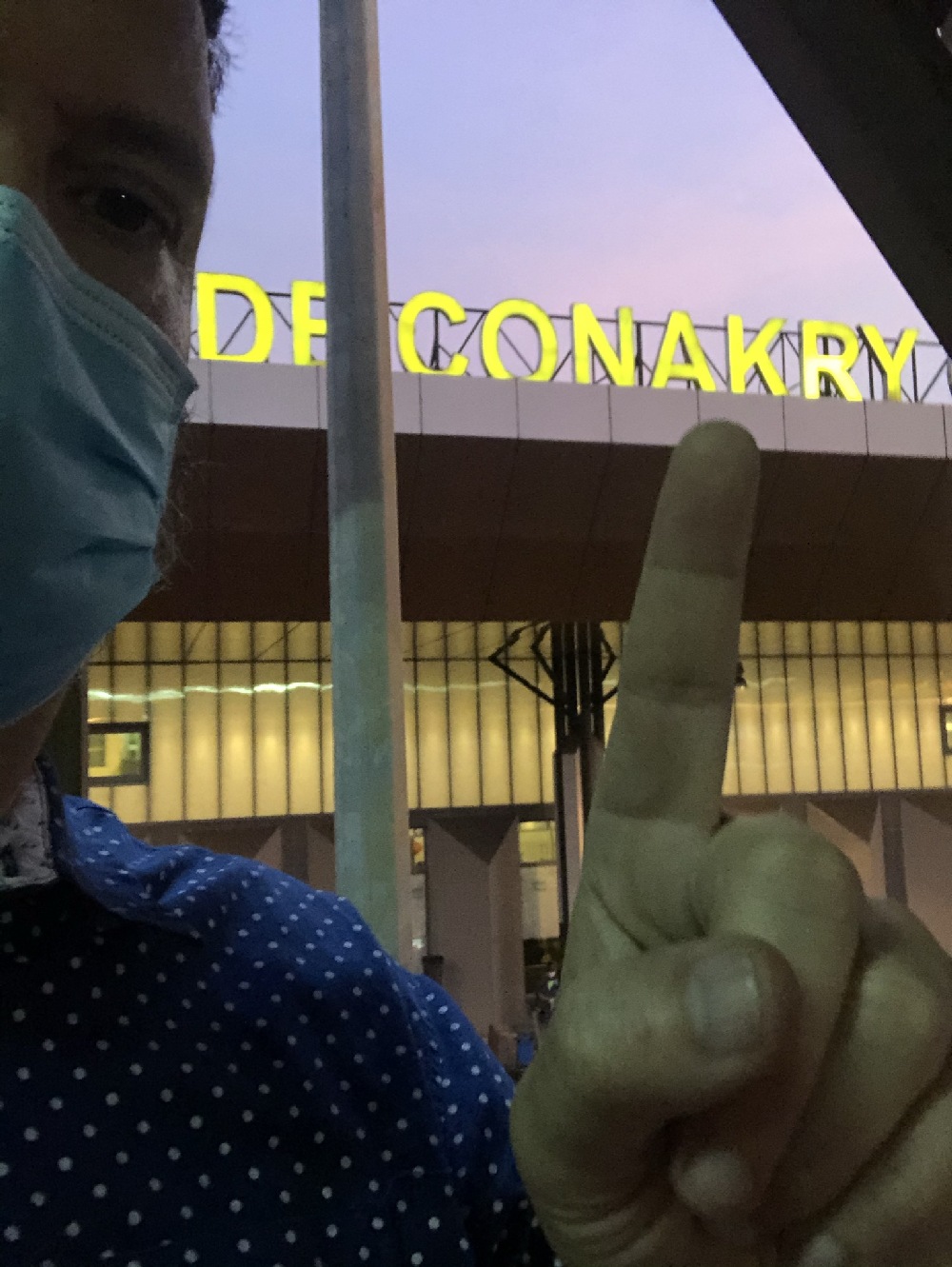
Conak-nak-kakin’ on Heaven’s Door
So on to the story. After I landed in Conakry (pronounced kuh-knock-ree, hence the pun) and got through immigration with my shiny, new visa, I cabbed it over to my hotel in the heart of the city. I had two million dollars in my pocket – Guinean Francs, that is…which came to about 200 USD. I had less than 10 minutes to drop my bags in the room, splash water on my face and take a deep breath, before I headed down to meet some very special friends for dinner.
>>> Psssst! Find a great hotel in Conakry, Guinea HERE.
As I mentioned in my Guinea-Bissau blog, I’m a radio personality and love visiting radio stations when I travel abroad. For this stop, I’d reached out to handful of radio stations in advance in hopes for a tour. I only received one reply; from a young man who worked at a Conakry TV and radio station called Lynx. Despite the language barrier, Gbilimou and I ended up becoming good online friends over the 45 days leading up to my trip. Gbilimou was a consummate professional and student of broadcasting. We exchanged more than a handful of video chats from each other’s radio stations, showing off each other’s studios, broadcasting equipment, and even staff members. We were both super-interested in each other’s parallel worlds. I was looking forward to visiting Gbilimou in person and spending some time at his radio station.
>>> RELATED: RAMBLIN’ ON THE RADIO – FOREIGN RADIO STATIONS
As my departure date loomed closer and closer with no sign of a visa, I was candid with Gbilimou on the fact that I might actually miss my Guinea stop altogether. He ended up being of great assistance, going to the trouble of obtaining an official letter of invitation from one of his contacts’ companies – paperwork that might assist in this difficult visa process. We’d stayed in contact all the way up until the end, including my recent stop in Bissau, where I’d informed him I’d been unsuccessful at each embassy and would not be coming through Conakry this time around. He seemed even more disappointed than I was. You can imagine how pleased I was to inform Gbilimou when I finally received my visa in that very last hour. We both rejoiced!
My one and only night in Conakry was well spent – having dinner at the hotel with Gbilimou, his colleague Theophile, beautiful sister Elisabeth and brother-in-law Loua. Theophile was fluent in English and would serve as the official translator of the evening, as all of us exchanged personal and professional stories over cocktails and great food.
My favorite story was one of Gbilimou’s: Turns out when he told his colleagues about meeting an American DJ who wanted to visit Conakry, they teased and chided him, convinced I was a Nigerian scammer who’d put together an elaborate scheme to defraud Gbilimou in some way. In other words, I wasn’t “real.” Gbilimou expressed to me how happy he was to be having dinner with me, in-person, and couldn’t wait to prove all the naysayers wrong. I loved this story! He really is a sweet kid. We all shared so many laughs.
By the time dinner was done, I felt like I made four, new, lifelong friends. The icing on the cake was when the group offered to help coordinate my overland travel to Sierra Leone the next day. They’d actually pick me up the next morning at 7AM to help me begin the trip. It would be one of the most thrilling and suspenseful journeys of my travel career, and in hindsight, would’ve ended in disaster without the care and coordination of my new Conakry compadres.
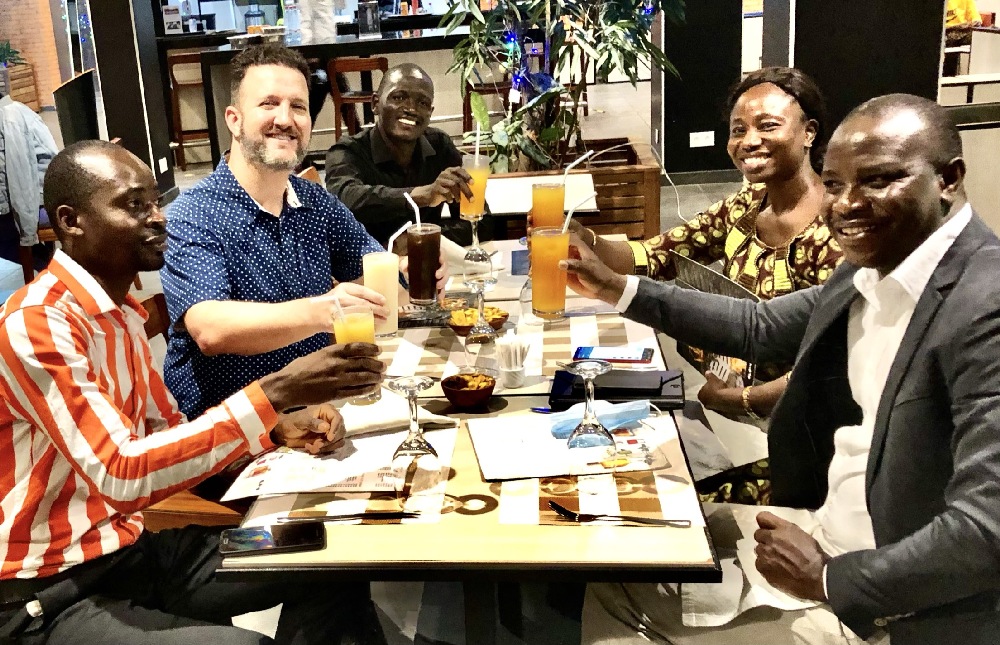
Slow Ride
I shoved two croissants from the breakfast buffet into my mouth as I ran out the door to meet Loua and Theophile. I was still floored that they woke up before dawn to drive all the way to the hotel to fetch me. I’d just met these folks, and they were bending over backwards to help me like I was family- I’m not worthy! We picked up Gbilimou on the way out of town. It took over an hour just to leave the city limits, and this was making good time – it’s not uncommon to get stuck for hours trying to leave the peninsula during rush hour. Luckily, we’d hit the road by seven and most of the traffic was heading in the opposite direction. I felt bad, because I knew the guys would be stuck in this mess on the way home. On the way, the guys gave me a crash course on the city’s highlights and history.
By 8:15 we’d made it to Coyah. This was one of a couple major transportation hubs where shared taxis congregated to fill up with paying passengers heading out of town to various parts of the country. Had I been on my own, this is where I’d have to find a driver to take me to the border. Sounds easy enough, but it’s really not. First, you have to find a driver you can trust, with a car you think might actually “make it!” The big dirt lot was filled with nothing but old 1980s clunkers that looked like they’d been through multiple wars. Broken windshields, missing headlights, dragging tailpipes, you name it – the parking lot would be mistaken for a junkyard by most Americans.
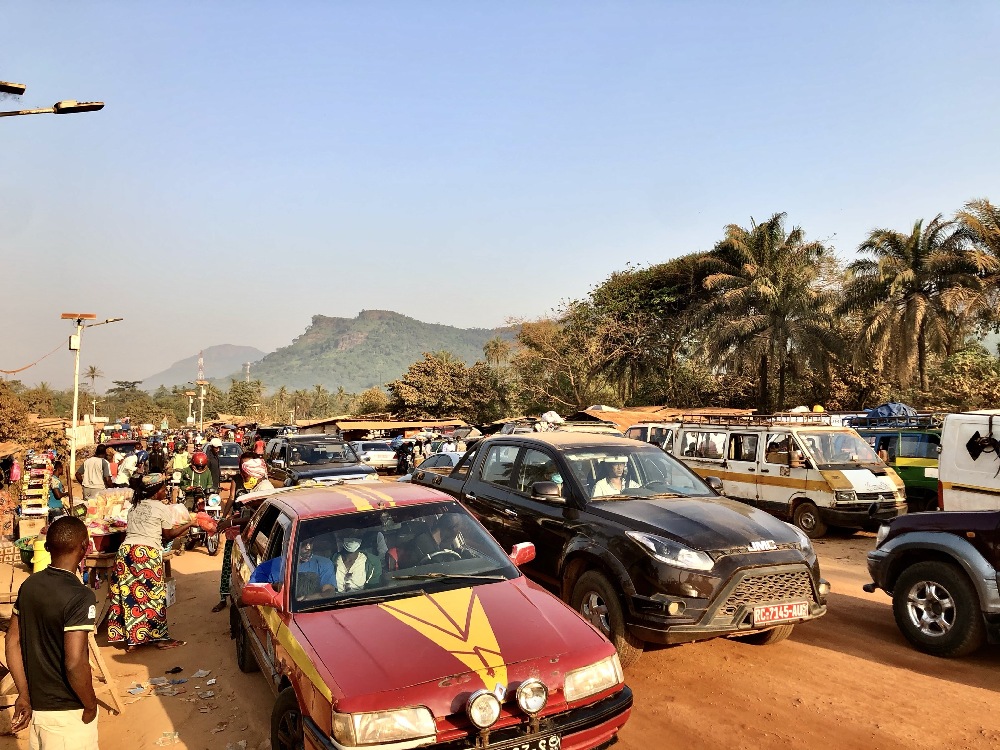
Ready? Set? No.
The other issue was actually leaving. You find your driver and car, negotiate a seat, confirm direction of travel, and then what? You think you actually get to leave then??? (Cue evil laugh.) That’s just the very beginning – you must now wait until the entire car is filled up with paying passengers. The driver ain’t leavin’ until there is a butt in every seat. I did my research – this could take hours. Factor in the language barrier–most likely none of these folks speak or understand a lick of English–and I don’t know how I would’ve ever figured this all out on my own. While researching this trip, I’d found a blog from a friend of mine that explained how he started this “car hiring” process at 8AM and wasn’t on the road until close to 2PM. Oy vey! (You can [and should] read his story here – it’s a great account of how difficult this journey is.)
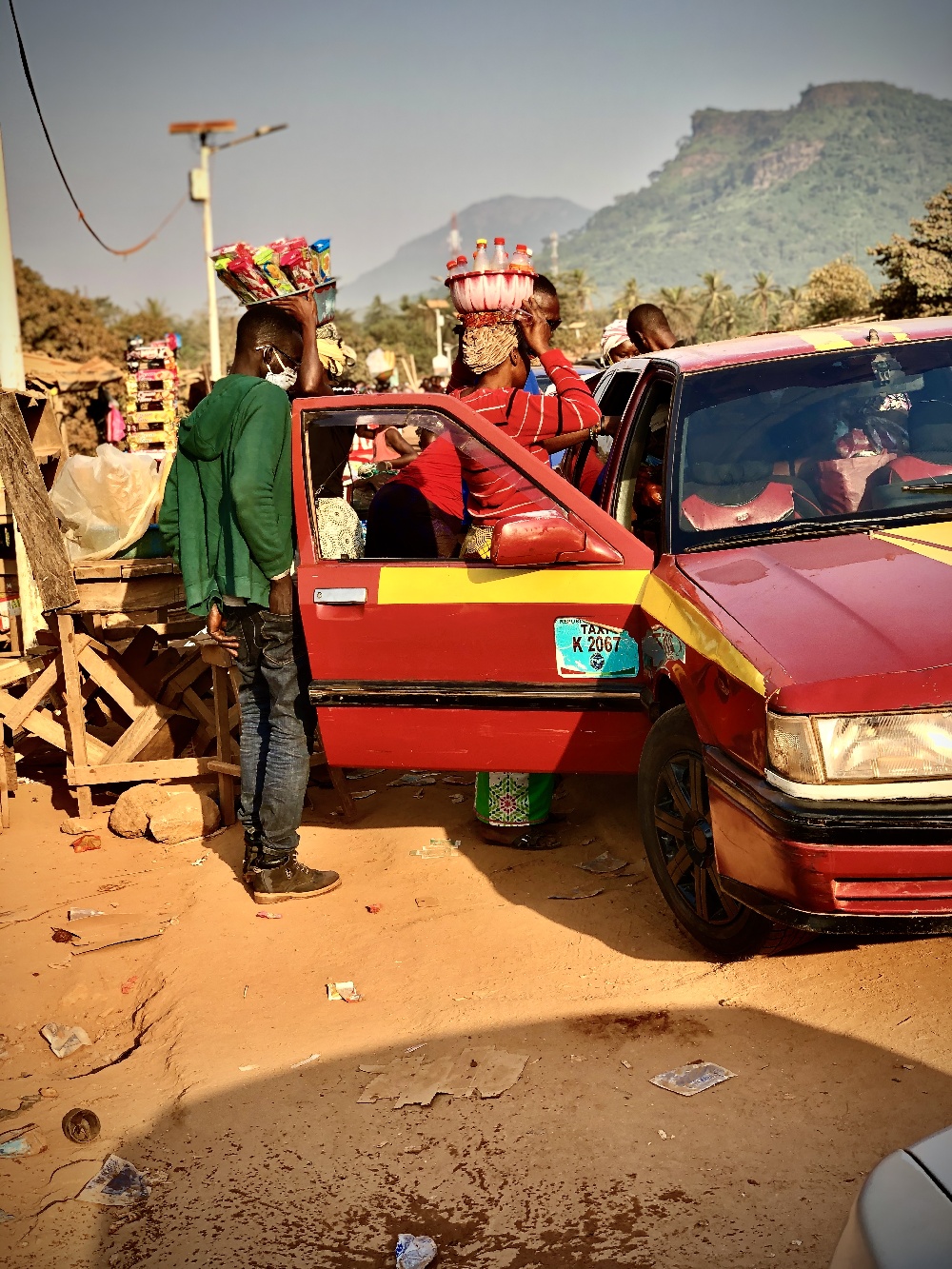
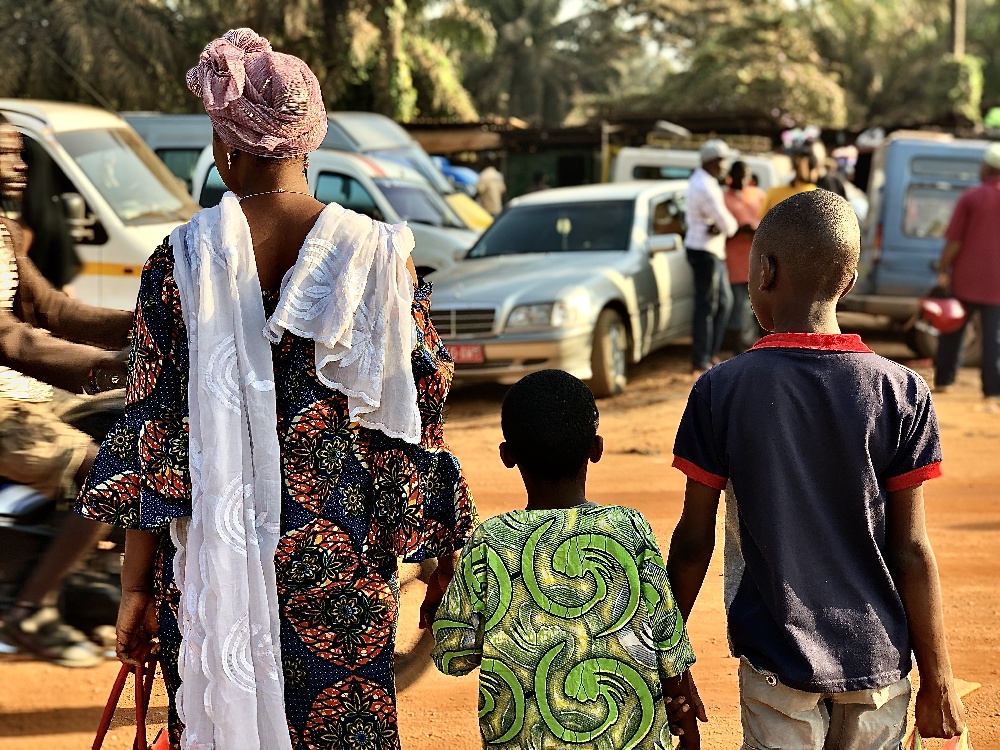
A Little Help From my Friends
Thank goodness I had help from my amazing radio station friends, who were not only kind enough to take me all the way to Coyah on a work day, but also did all the scouting and negotiating to get me just the right car that would take me to the border. I stood back and watched the morning hustle and bustle while these guys got to work on finding me the perfect car. They returned 20 minutes later with a driver, a car and a plan. To my surprise and delight, they’d even exchanged contacts with the driver and would coordinate with him along the way to ensure I’d arrive safely. What gentlemen!
Road Rules
Not sure if you caught the part in the video where I was directed to switch from a car to a motorcycle to arrive at the border. I still don’t understand the reasoning, but it was explained to me that automobiles aren’t allowed to drive all the way up to the border. The car would take me as far as he could–to a village near the border named Pamelap–then I’d jump on the back of a moto that would take me up to the border. My God, Anthony Bourdain would be proud.
I said my goodbyes and gave my profuse thanks to my dear friends Gbilimou, Theophile and Loua, and then got into the 1985 Renault with my driver and three passengers in the backseat. The journey now continues. There were definitely a few bumps along the way, but the scenery was awesome! And by the time the ride was over, I’d made four more new friends.
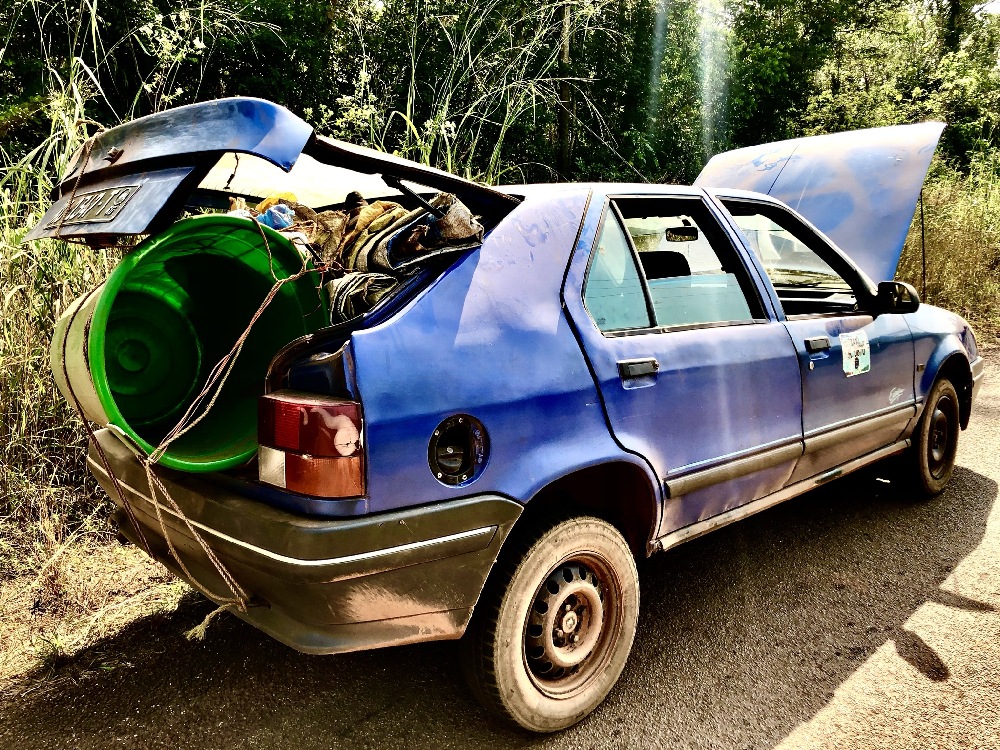
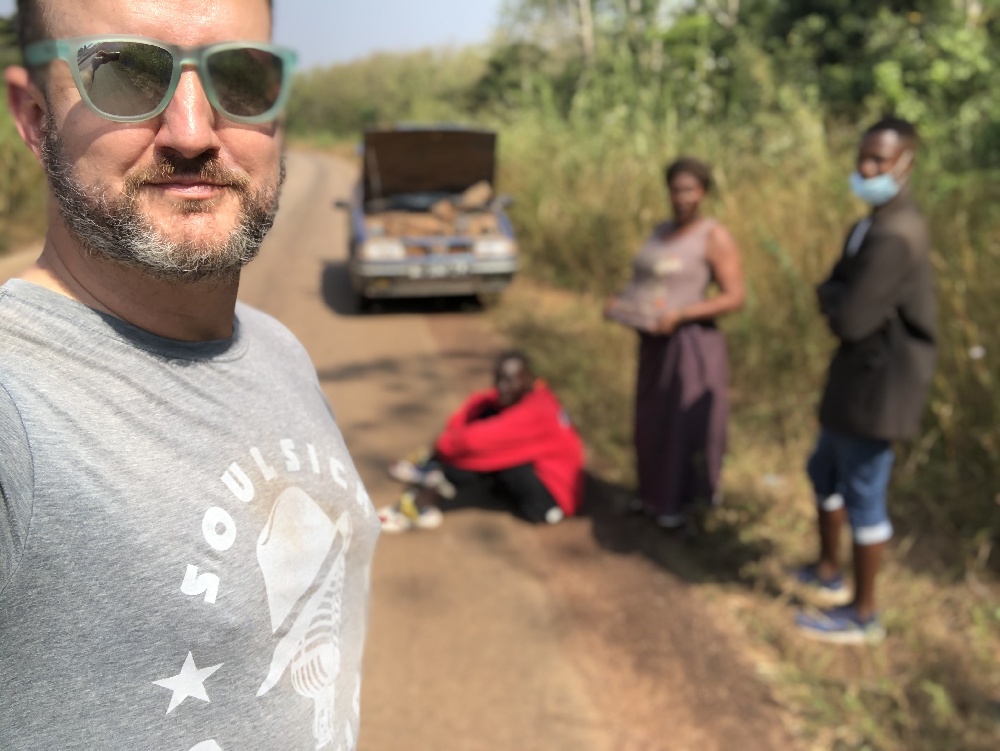
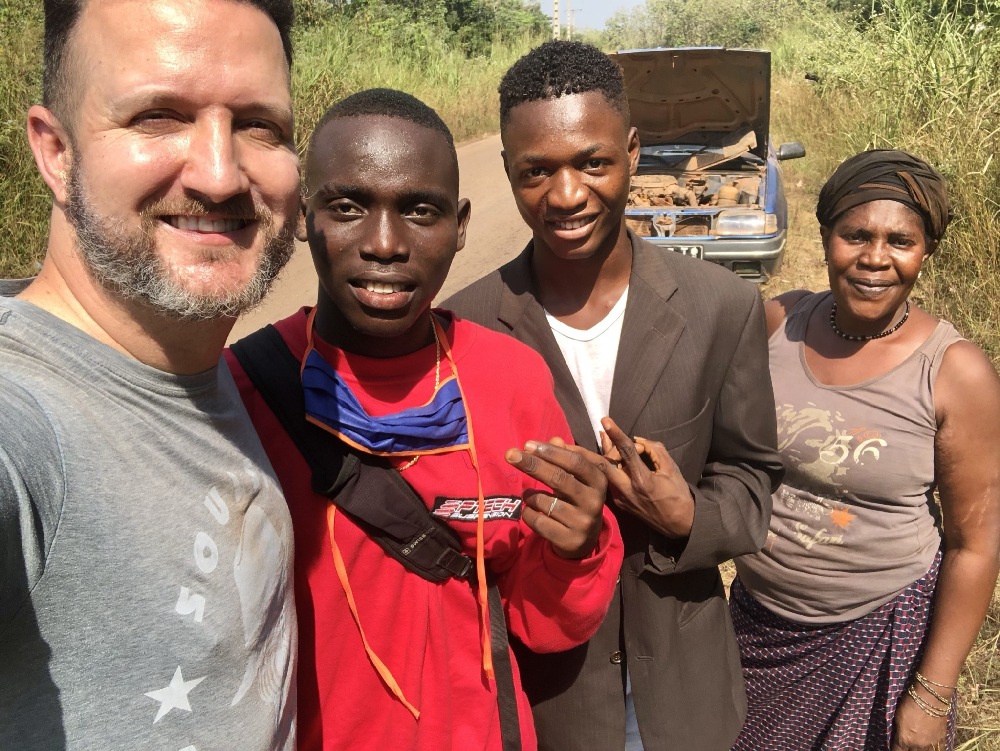
Last Stop, Everybody Out
My fellow passengers were dropped off in different villages along the way. It was actually a fun ride – shout out to the guy in the back who provided the ride’s musical soundtrack from his phone – your playlist was fire, man! Soon the car arrived in the village of Pamelap, and I was being handed off to the guy with the bike who’d help me change money and get me to the border. After a brief break under the shade of a wooden shack, it was onto the back of the bike, sans helmet (sorry Mom), and over to the border. The cars soon disappeared, as we passed a line of semis lined up alongside the road. I held on for dear life. It was like we were entering no man’s land.
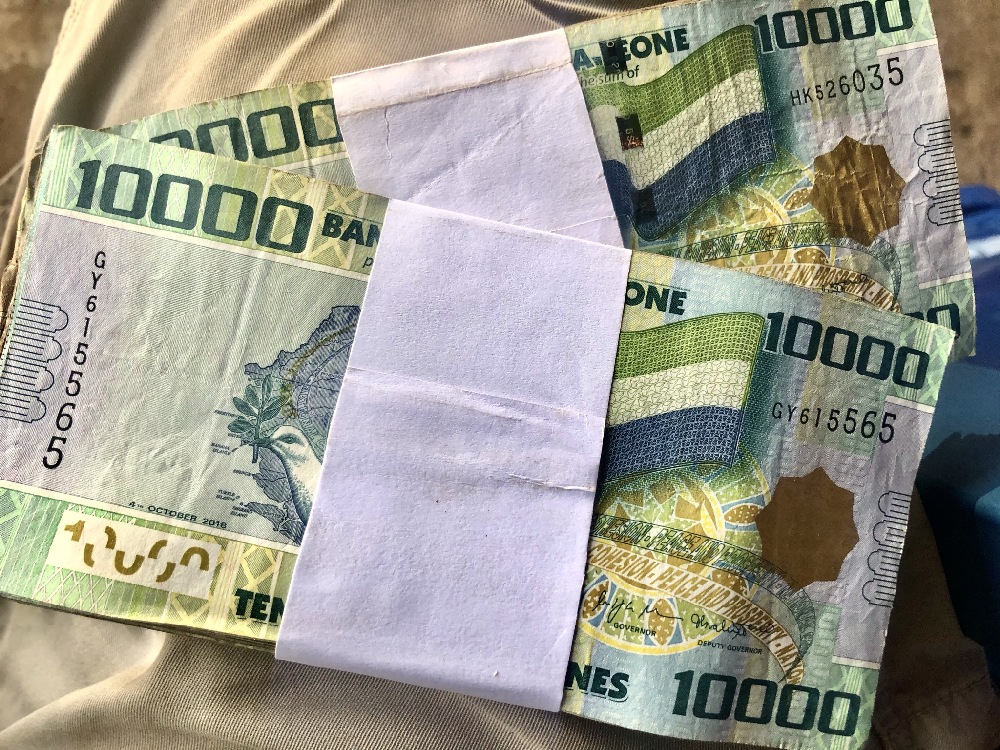
Don’t Turn Around (wa-uh-oh) Der Kommissar’s in Town
If I thought the ride to the border was full of excitement and thrills, what would come next seemed straight out of a movie. First I was directed into a hut–literally a hut–a small round building with a straw roof. The two men there directed me and the moto driver (who was sticking with me to see that I crossed successfully) to the building next door. Once we entered, a couple of uniformed men appeared and conversations in French ensued between them and my driver. The next thing I know, I’m being ushered into an office. The sign above told me it was the big man: Le Commissaire. I had officially been sent to the principal’s office.
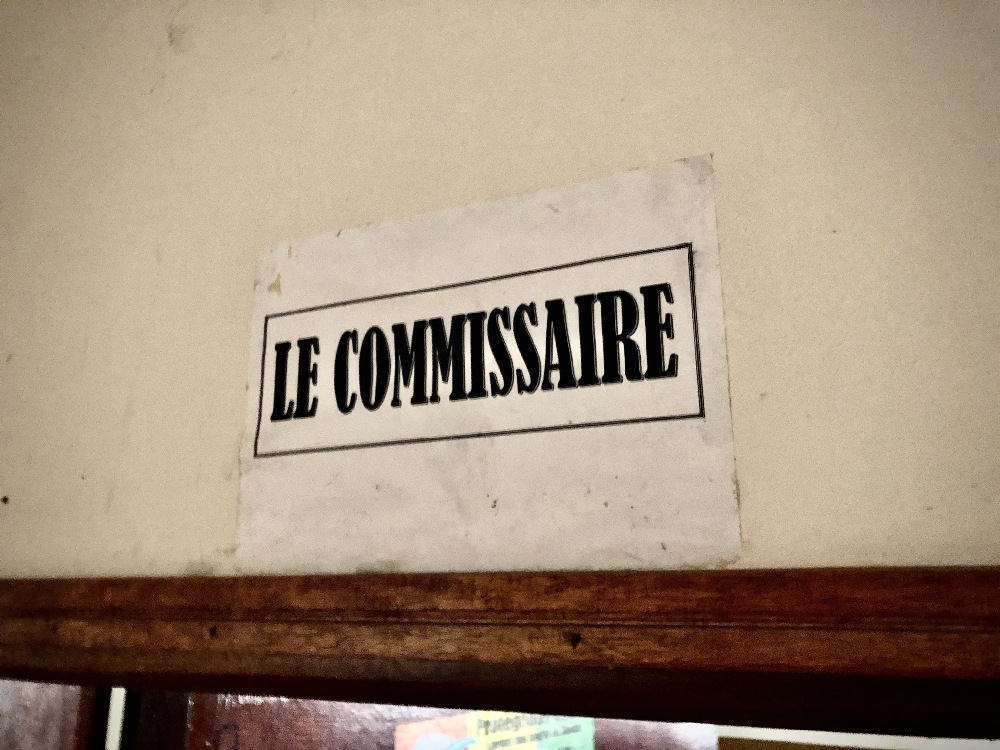
It was obvious that the man behind the big walnut desk was important from the plaques and certificates on his wall alone. Dressed in a dark blue jacket with brass buttons, he donned all the stripes and bars that would erase any doubt that he was in charge and this was his domain. I was told to take a seat and I did – I folded my hands and kept my mouth shut until I was spoken to.
“Illinois?” asked the commissar, looking at my passport’s first page. “I know Springfield!”
“Oh really?” I replied, happy to be making small talk and relieved he spoke English.
“I have friends in Charlotte too. And Albuquerque. And Helena, Montana!” The commissar seemed proud to personally know the handful of U.S. cities.
“I’m on the radio in Albuquerque,” I responded. “And Helena, too!” I was happy we were getting along so well, so soon. But his demeanor suddenly shifted.
“You are journalist? CNN? BBC?,” he asked with suspicion.
“No, no, I play music,” I responded. “You know J-Lo?” I pulled up my phone to show him a picture of me and J-Lo.
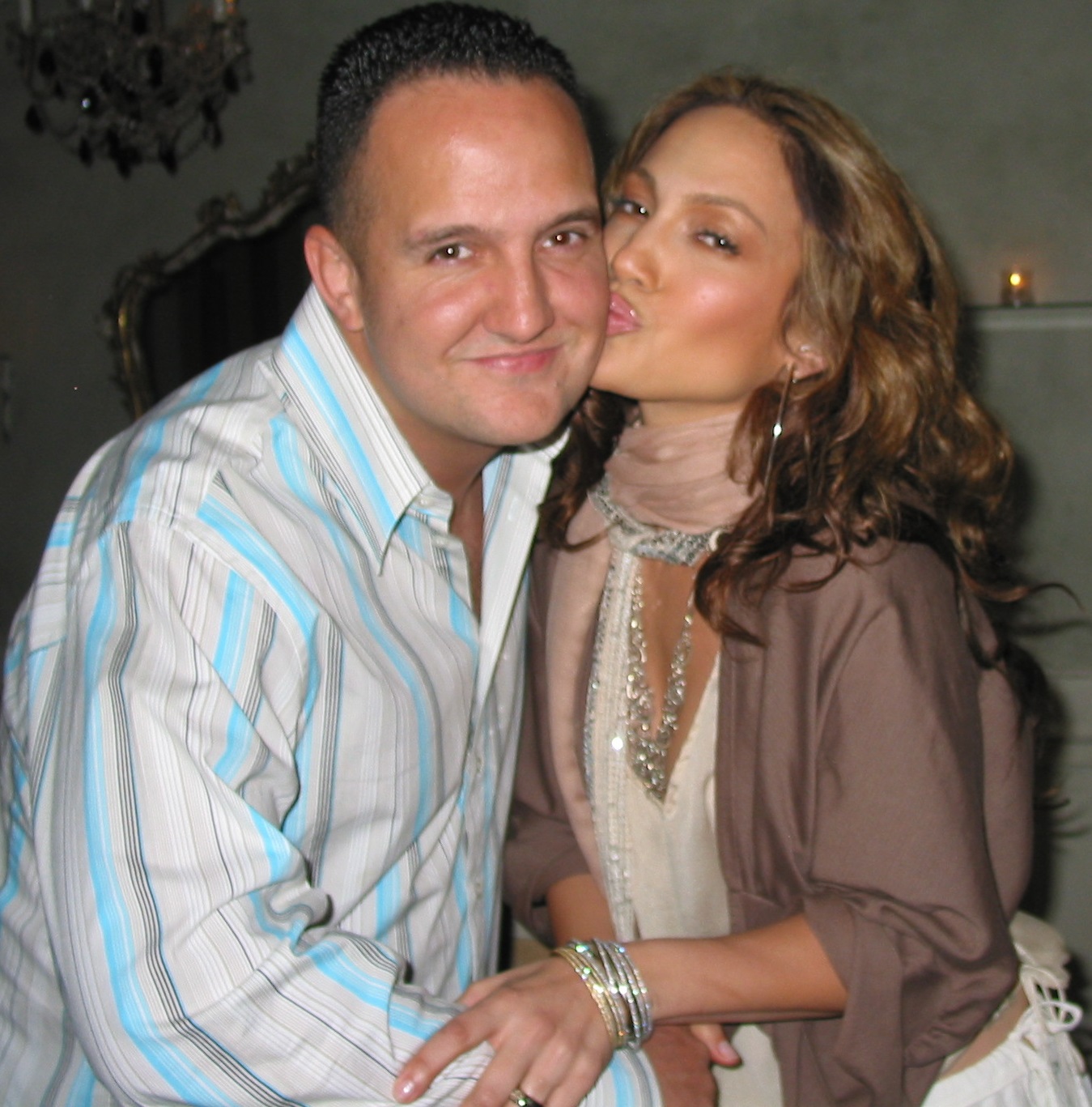
The phone rang and he picked it up, yelling angrily at whoever was on the other end. He slammed the phone down before turning back to me with more questions.
“So, why are you here in Guinea? How did you even enter my country?” His town turned to irritated.
I showed him the map on my phone – the map of the world with the countries I have visited shaded in. I explained I was on a mission to see every country in the world and that Guinea was proudly number 160 and that I was happy to be here. I couldn’t tell if the exchange was going in my favor or not.
Then came the devastating news. The commissar switched to a serious, lecturing tone.
“You know, ten months ago the pandemic came and we shut the border closed. It remains closed today. I’m going to send you back to Conakry. What do you think about that?”
It was at this point I knew there was only one answer.
“Well, I completely understand. I know this is a difficult time. I really need to be in Freetown for my flight tomorrow, but I will respect whatever decision you make. I realize you have a job to do.”
Then, silence.
“Are you a soldier?”
“No sir,” I answered.
“A policeman? I can tell from your haircut you are military or police!”
“No sir. I’ve been a radio presenter since I was 15 years old.”
He then went on to ask about my schooling. I didn’t know where this was going.
His tone changed again, to disciplinarian.
“Well, I’m going to send you back to Conakry! You will sign papers taking responsibility and agreeing to go back! Do you understand this?!”
I immediately worried I’d be signing papers in French admitting to transporting an obscene amount of narcotics across international lines – I’ve seen this play out in the movies.
“You know what – I’m going to send you to a jail cell,” he yelled.
I honestly couldn’t believe what I was hearing and told myself he must be just trying to get a reaction out of me. I wouldn’t let myself believe that this was actually happening. Complete denial: It was the only option I had to avoid shitting my pants, right there on the commissar’s sofa. Honestly, I was ready for Ashton Kutcher and the camera crew to pop out of the closet at any minute to tell me I was being Punk’d.
“You know, I don’t respect journalists. All they do is report the bad things.”
The hairs on my arms stood straight up. This was my chance.
“You are absolutely right. May I tell you something? Look at the hairs on my arm please.” I displayed my goose bumped-laden arm. “Do you see them standing straight up? What you just said – I can’t agree with more. And that’s exactly why I travel. I often go to places that only get bad raps – countries like Somalia, South Sudan, Libya, Venezuela and Iraq. I go to these so-called ‘scary places’ and then write about the beauty I see there – because, yes, all the media shows are the bad parts. I can’t wait to write about Guinea. I’ve met some really great people here.”
The rest was a blur. Altogether, I spent about 45 minutes in his office. One minute I thought we were getting along swimmingly, the next moment I worried arrest (or worse) was imminent.
Finally, those magical words: “I’m going to let you pass. Safe travels.” He smiled. I let out the biggest sigh of relief and thanked him.
I’m not sure I’ll never truly know the seriousness (or lack thereof) of this meeting. Was I really going to be sent back, or worse, sent to jail? Or was this just the commissar’s idea of passing time – having fun with the American? Maybe one day I will find out. Maybe some day the commissar and I will cross paths again. There was a point where, in an effort to butter him up, I offered to host him the next time he visited the U.S.
“People are always my friend when they are inside this office,” he replied. “But as soon as they walk out this door, I never hear from them again.”
But I did mean it and I was sincere. He gave me his card on my way out, and we’ve since been in touch.
Goodbye Guinea
I may not have seen many monuments, malls or museums in Guinea. In fact, no real “sights” at all. But more important than seeing any statue or structure, I left with new friendships.
I absolutely adore Gbilimou and his friends. I look forward to seeing them again, but hopefully next time, for much longer. I still need to explore Conakry.
And thanks to the commissar, I was now able to exit. But I wasn’t out of the woods just yet. Yes, I may have left Guinea, but I still had to enter Sierra Leone. I’d face problems there, too, and you won’t believe what happens with the big boss on the other side. Stay tuned: Sierra Leone, coming next.
This entry was posted in Africa

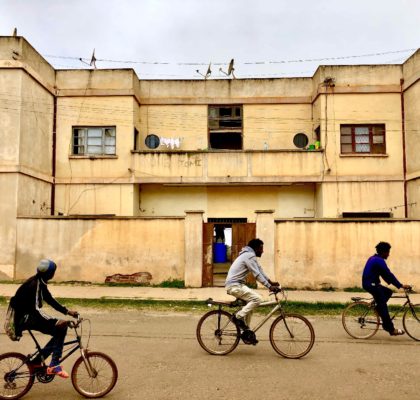

I am grateful to God for such a great trip that you had in West Africa, specially to Guinea at this moment with pandemic and political issues.
You’re a good and great man on the way of becoming greater, …yes, yes… You will.
You could trust us in Guinea for any activity and business in the future.
My brother. What can I say? My favorite part about your beautiful country was getting to know you and your amazing colleagues. I look forward to meeting again, hopefully in the near future. Have an amazing 2021.
Until recently, Transair Sénégal used to connect Dakar, Banjul, Bissau and Conakry several times a week, but as of 2020 they only operate to Praia and Ziguinchor:
https://groupetransair.sn/transair/programm/index
Thank you!
Sending you back to Conakry or to jail would not have brought any benefits to the commissaire. He was hoping you would offer something to him in exchange for letting you cross the border, but was probably too “shy” or decent to ask. A lower ranked officer would have asked straight away without shame. After he got fed up waiting for your offer, he just let you go.
Thank you!